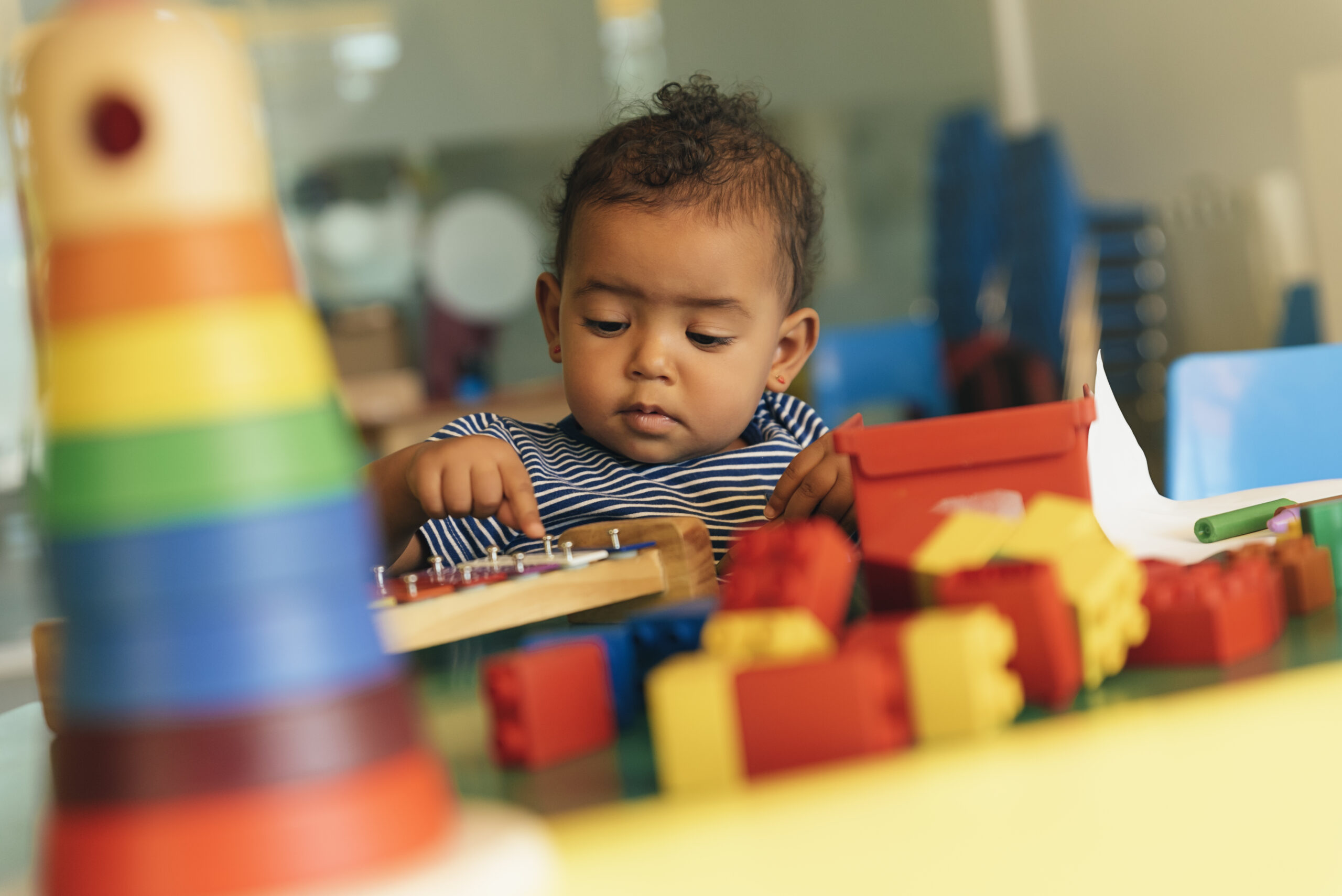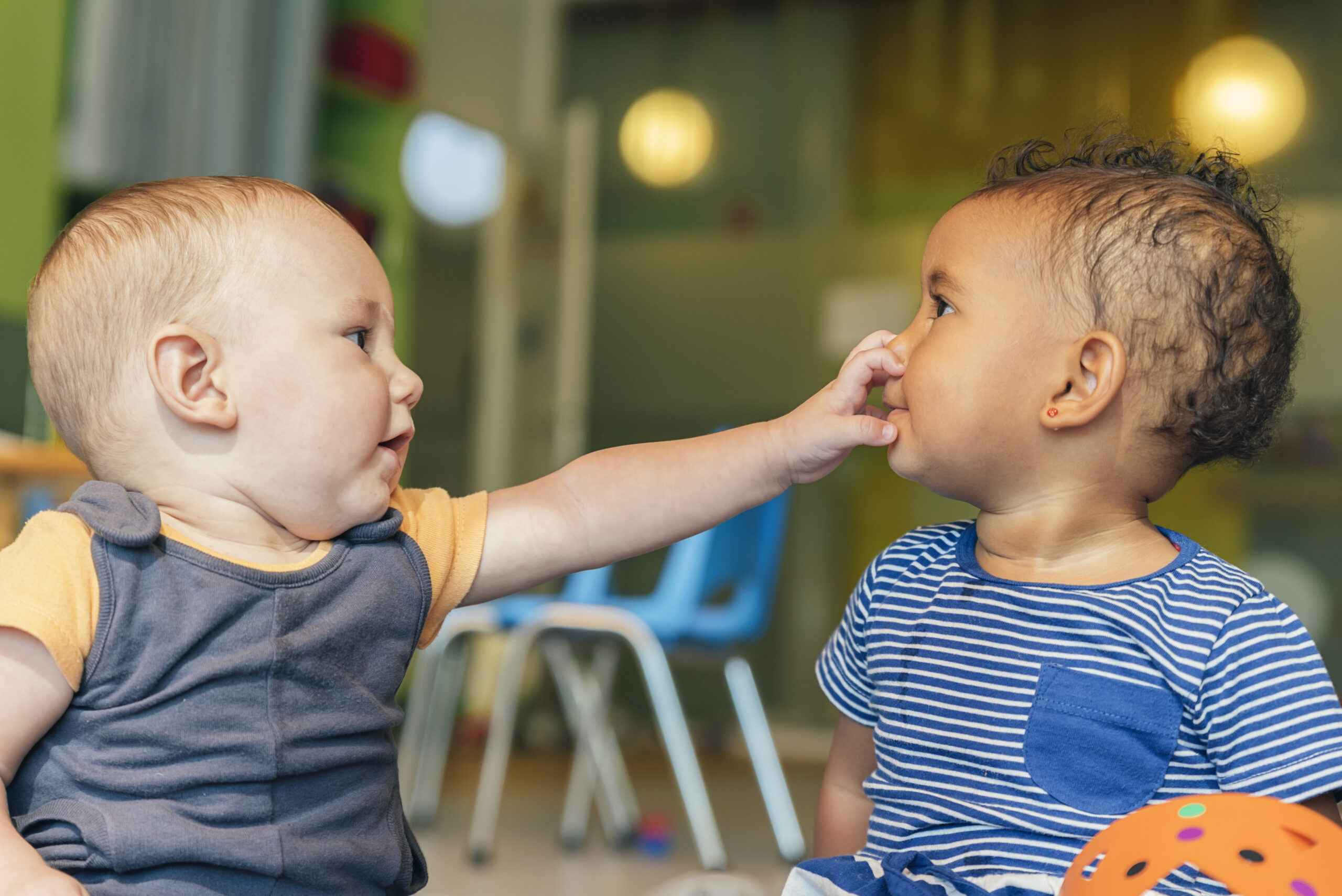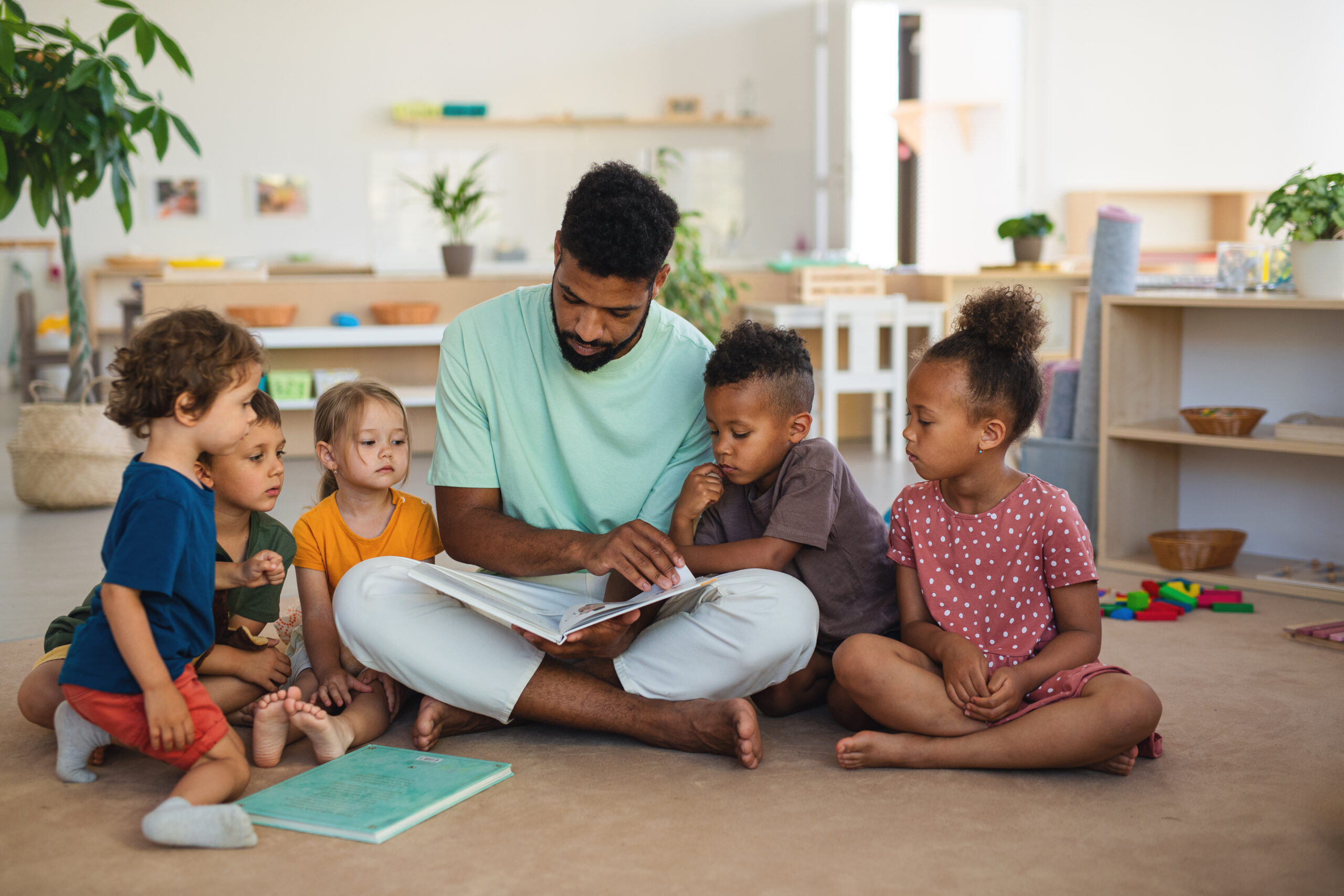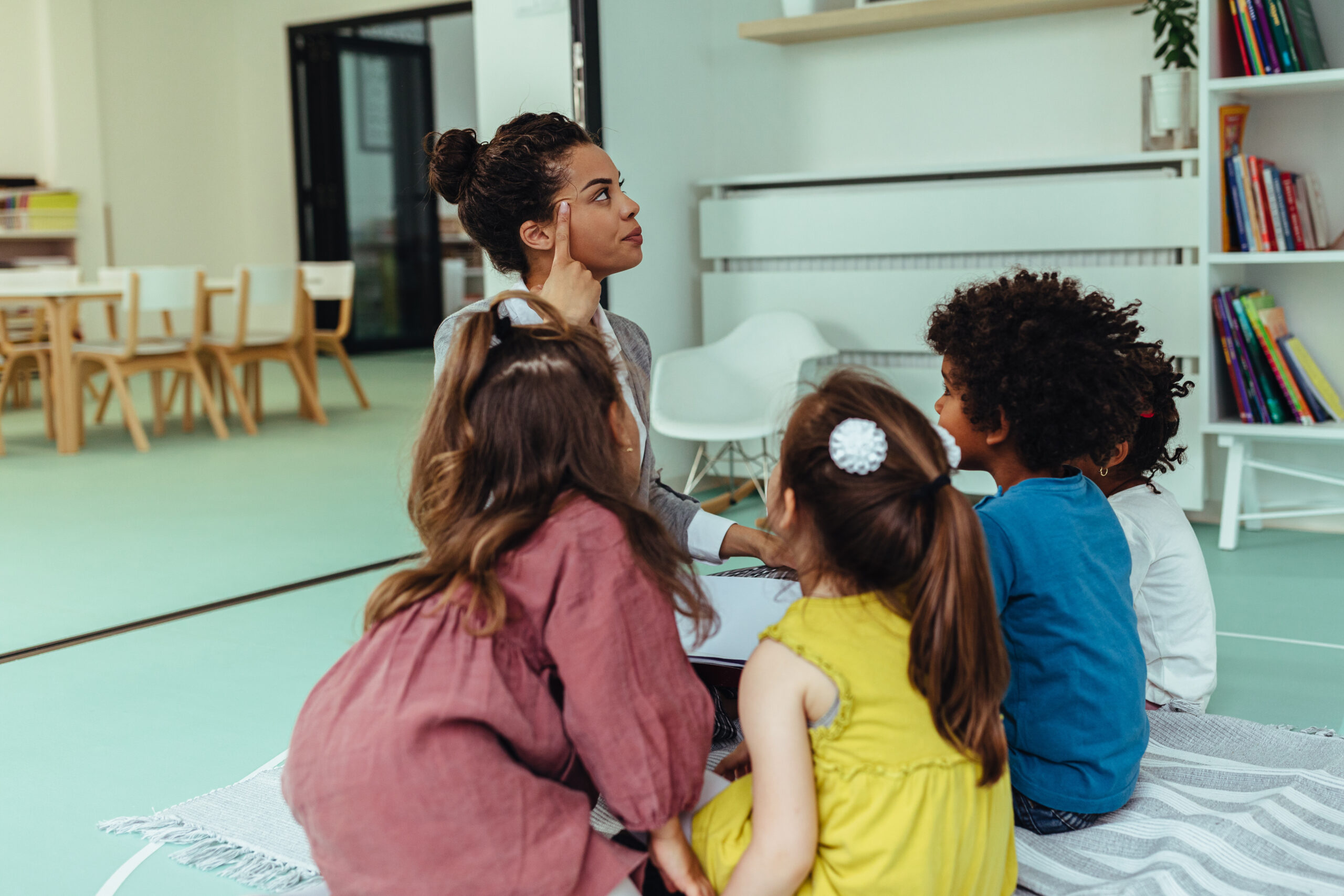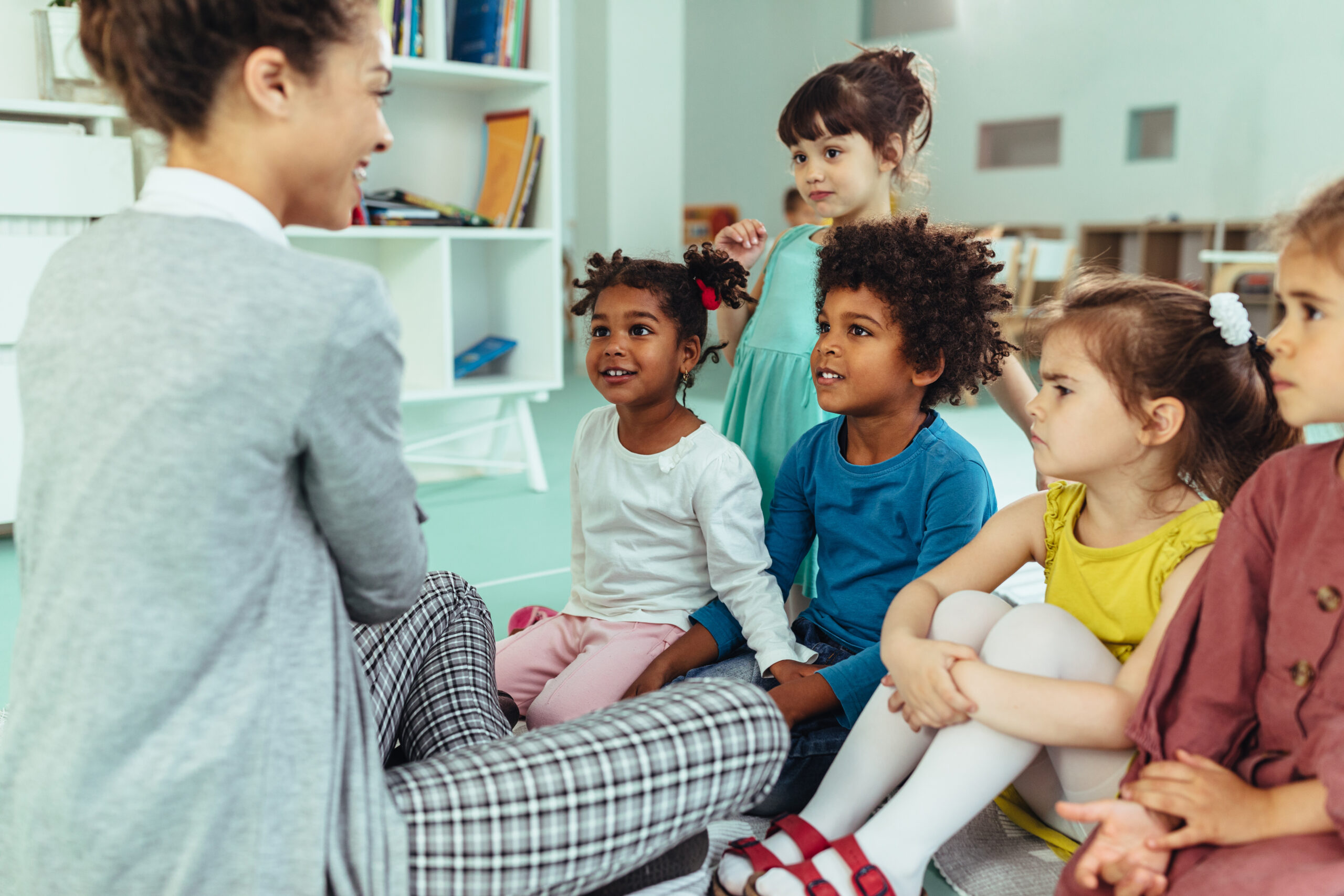By: Maya Fanjul-Debnam
Minnesota is heralding in an innovative program to help close the word gap. The word gap–a 30 million word deficit between children from low income families and their more well-off peers– is evident by age 3. In order for it to be reversed, children need both parents and caregivers to speak, sing and read to them often.
This new approach to early literacy, originated by the LENA Research Foundation, is designed to make a tangible change to those stats by encouraging parents to be more intentional about building vocabulary-enhancing interactions into their parenting.
But how they do it is what’s unique. The program puts a small device on the child for sixteen hours a week that measures interactions and vocabulary with the child. The device doesn’t record what is being said to the child, instead it picks up on who is talking to them, if they interact with humans or audio from a TV more and the frequency of the child’s communication attempts. This information is condensed into a report card, which a trained professional goes over with the child’s parent or caregivers. This real-time feedback shows caregivers where they are excelling and where they have the opportunity to improve. It’s crucial in helping parents understand what they’re doing well and what they can improve.
A recent Minnpost article describes how a few families in Minneapolis are participating in a new early childhood class at Northstar Mona Moede Early Childhood Center utilizing the technology.
“Overseeing the class at Mona Moede, the center’s director, Elizabeth Fields, says families have been receptive because it’s framed as a resource rather than an assault on anyone’s parenting style.”
After just a few weeks in the program, parents had already started adding bedtime stories and songs into their child’s daily routine. They felt their children were responding positively, and it was truly making a difference.
The technology that is used for this program was created by the LENA Start program, part of an early language project conducted by the LENA Research Foundation.
LENA is based on the East Coast but this project marks its first move to Minnesota. The technology is currently being housed at the University of Minnesota, and a range of early childhood educators are collaborating with the project.
Think Small is excited about this step toward improving childhood literacy and closing the word gap. We hope more and more families and early childhood educators use this new technology to change a child’s life.

